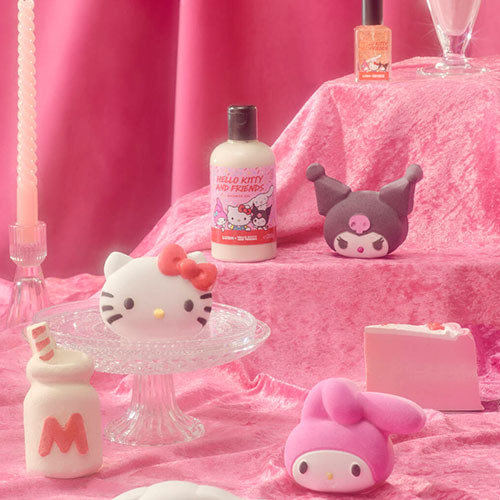Start Licensing’s Ian Downes finds some examples of how charities are developing partnerships through licensing, while also keeping his eye on how retailers are using licensed products in their Christmas offers.
An interesting development in licensing is how charities are more actively involved in the marketplace and are seeking to develop partnerships through licensing.
At Brand Licensing Europe organisations such as the RSPB, English Heritage and the NSPCC all had a presence. Of course, Louis Kennedy and its sister company Blu Goblin have been linking charities with the licensing for a long time.
BBC Children In Need and its brand character Pudsey caught my eye this week. I saw high street jewellery and gift retailer F.Hinds prominently promoting a range of Pudsey merchandise. It was promoting it in the windows and via a display poster. It has developed three items – an Alarm Clock, a Trinket Box and a Money Box. These are all presented as limited edition items which seems a sensible strategy for a time limited opportunity.
BBC Children In Need is a major event, but it is an event and as such retailers have to tread carefully in terms of stockholding and the extent of a range they decide to carry. This looks like a sensible approach. It is, of course, a good commercial opportunity for the retailer, but linking with BBC Children in Need is also good from a perception and positioning point of view.
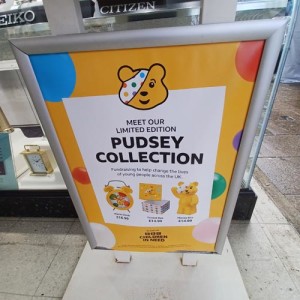 I believe this is the second year of the partnership between F.Hinds and BBC Children In Need – initially in 2021 it sold pin badges and took donations for the charity. This year things have expanded into a wider product range – this is a good example of how sometimes retail relationships have to be nurtured over time. I think for F.Hinds there is also a really good benefit on a local and regional level where they can connect with local communities through this partnership and also dial up local PR.
I believe this is the second year of the partnership between F.Hinds and BBC Children In Need – initially in 2021 it sold pin badges and took donations for the charity. This year things have expanded into a wider product range – this is a good example of how sometimes retail relationships have to be nurtured over time. I think for F.Hinds there is also a really good benefit on a local and regional level where they can connect with local communities through this partnership and also dial up local PR.
BBC Children In Need has been very successful in developing partnerships across different categories and with companies that are at different stages in their corporate journeys. A good illustration of this mixed economy approach is the partnership with jam brand Fearne & Rose. Reduced-sugar jam brand Fearne & Rose has announced plans to raise £500,000 for BBC Children In Need over the next three years. It will focus on Pudsey-branded strawberry jam. These are currently available on its website with the option to personalise the jars. Another example of the growing use of personalisation within FMCG and underpinning the trend for consumers seeking out special edition products. Fearne & Rosie plans to get the product listed at retail from January 2023. From BBC Children In Need’s perspective it gives it a presence in FMCG and also has created a product that isn’t limited time wise as the ambition is that this product will be on shelf permanently and will be a year-round fundraiser.
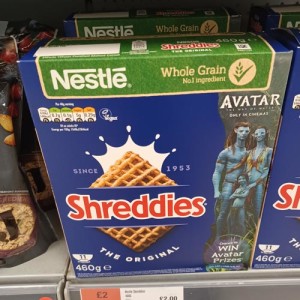 Talking of events and timing campaigns to take advantage of them, it was interesting to see Nestle cereals featuring Avatar – The Way of Water on-pack on brands such as Shreddies. It is relatively unusual to see on-pack promotions in the cereal aisles linked to films. Of course it used to be quite common and on-pack promotions with cereal companies were a vibrant part of the licensing mix.
Talking of events and timing campaigns to take advantage of them, it was interesting to see Nestle cereals featuring Avatar – The Way of Water on-pack on brands such as Shreddies. It is relatively unusual to see on-pack promotions in the cereal aisles linked to films. Of course it used to be quite common and on-pack promotions with cereal companies were a vibrant part of the licensing mix.
I noticed that Avatar is only available to see in cinemas. Given the changing landscape of film releases and a shift in how films are consumed, it may be that the marketers behind Avatar felt this kind of exposure was valuable and a welcome reminder to consumers to go to the cinema. The promotion is linked to a competition which invites consumers to enter online. This helps brand owners like Nestle build a more direct relationship with consumers. Given the shift in retail and shopping habits, it is probably quite appealing for brand owners to build a database and develop a direct relationship with customers.
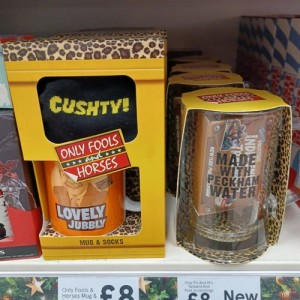 Returning to Christmas and how retailers a reusing licensing this Christmas. Tesco has developed a number of gift lines featuring licensed brands. My local Tesco had turned over space to Christmas gifting which featured composite gift packs featuring brands such as Star Wars, PlayStation, Only Fools and Horses and The Snowman. Selections seem to have been made to ensure there is a comprehensive offer across consumer groups. It was good to see that even though the products were competitively priced, there was some originality being shown in product terms. The brands worked well on shelf and you can imagine Tesco likes the fact that it can feature high profile brands in this category. It probably also likes to have exclusive designs and products. It certainly draws people to the fixture.
Returning to Christmas and how retailers a reusing licensing this Christmas. Tesco has developed a number of gift lines featuring licensed brands. My local Tesco had turned over space to Christmas gifting which featured composite gift packs featuring brands such as Star Wars, PlayStation, Only Fools and Horses and The Snowman. Selections seem to have been made to ensure there is a comprehensive offer across consumer groups. It was good to see that even though the products were competitively priced, there was some originality being shown in product terms. The brands worked well on shelf and you can imagine Tesco likes the fact that it can feature high profile brands in this category. It probably also likes to have exclusive designs and products. It certainly draws people to the fixture.
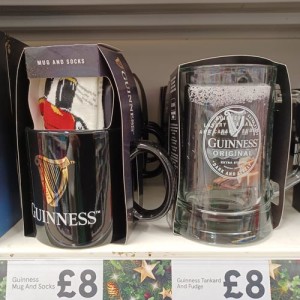 Tesco also featured a number of food and drink brands in composite gift packs. Brands featured include Baileys, Slush Puppie, Jack Daniels and Guinness. The products combine items like drinkware and accessories. For the brands that feature in the composite gifting category it allows them to leave their normal distribution and to be part of the Christmas ‘gifting’ occasion. It is also a way of testing new product designs and formats.
Tesco also featured a number of food and drink brands in composite gift packs. Brands featured include Baileys, Slush Puppie, Jack Daniels and Guinness. The products combine items like drinkware and accessories. For the brands that feature in the composite gifting category it allows them to leave their normal distribution and to be part of the Christmas ‘gifting’ occasion. It is also a way of testing new product designs and formats.
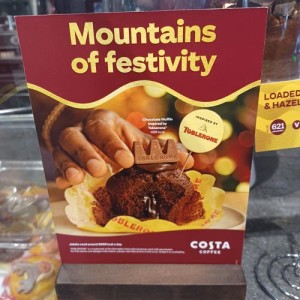 Thinking about testing new formats it was also interesting to see how Costa Coffee is working with chocolate brand Toblerone. It has developed a Toblerone inspired latte as part of its Christmas offer. Coffee shops are increasingly featuring FMCG brands to create special and limited edition offers.
Thinking about testing new formats it was also interesting to see how Costa Coffee is working with chocolate brand Toblerone. It has developed a Toblerone inspired latte as part of its Christmas offer. Coffee shops are increasingly featuring FMCG brands to create special and limited edition offers.
These partnerships allow them to offer distinctive and exclusive added value products. It creates social media ammunition and help them differentiate themselves in a competitive marketplace. For brand owners like Toblerone it is a way of extending their brand in a controlled and targeted way. It helps them build on their flavour credentials and connect with new consumers. Christmas in particular inspires and drives creative thinking in the coffee category.
Ian Downes runs Start Licensing, an independent brand licensing agency. His Twitter handle is @startlicensing – he would welcome your suggestions for what to look out for.



























